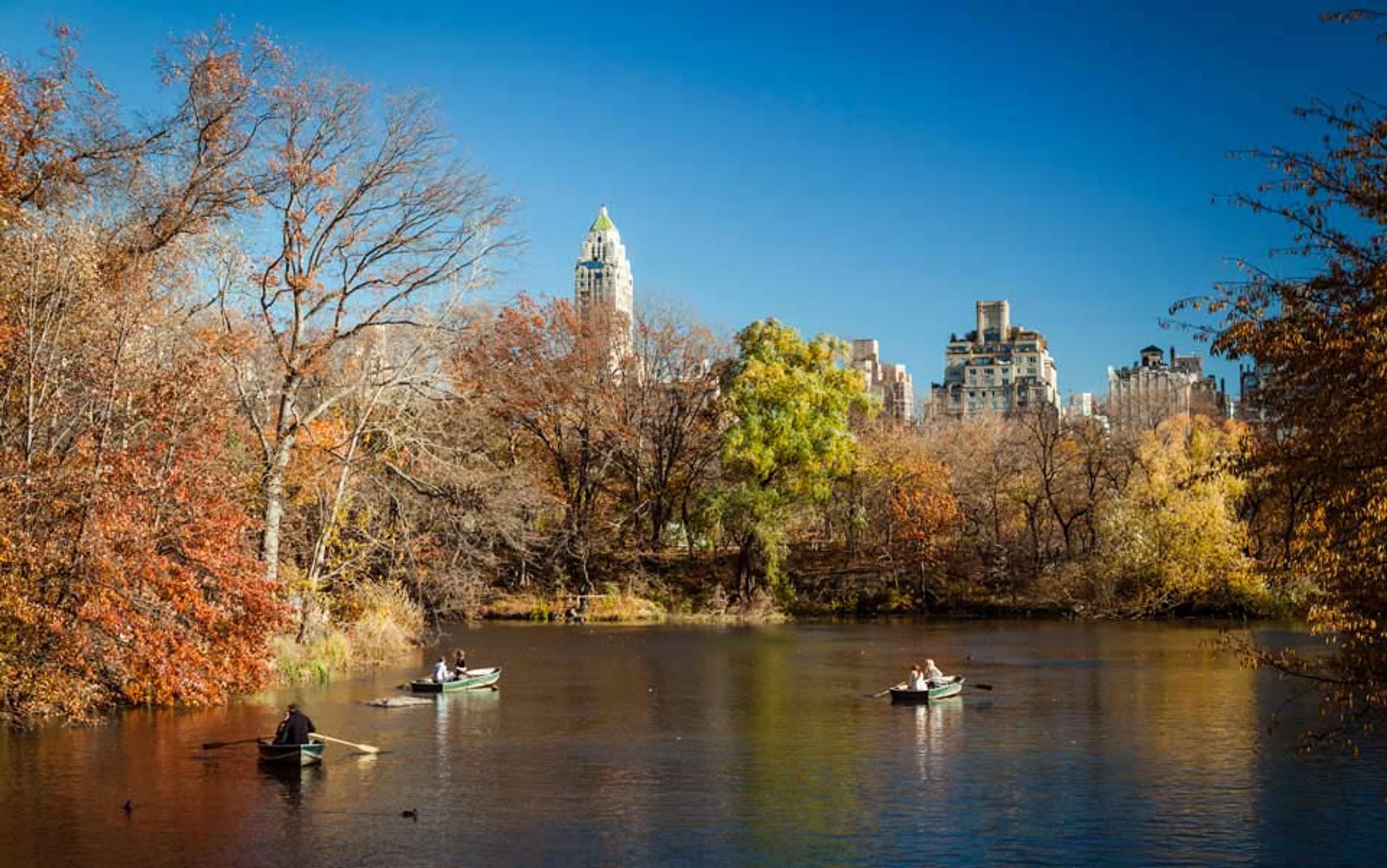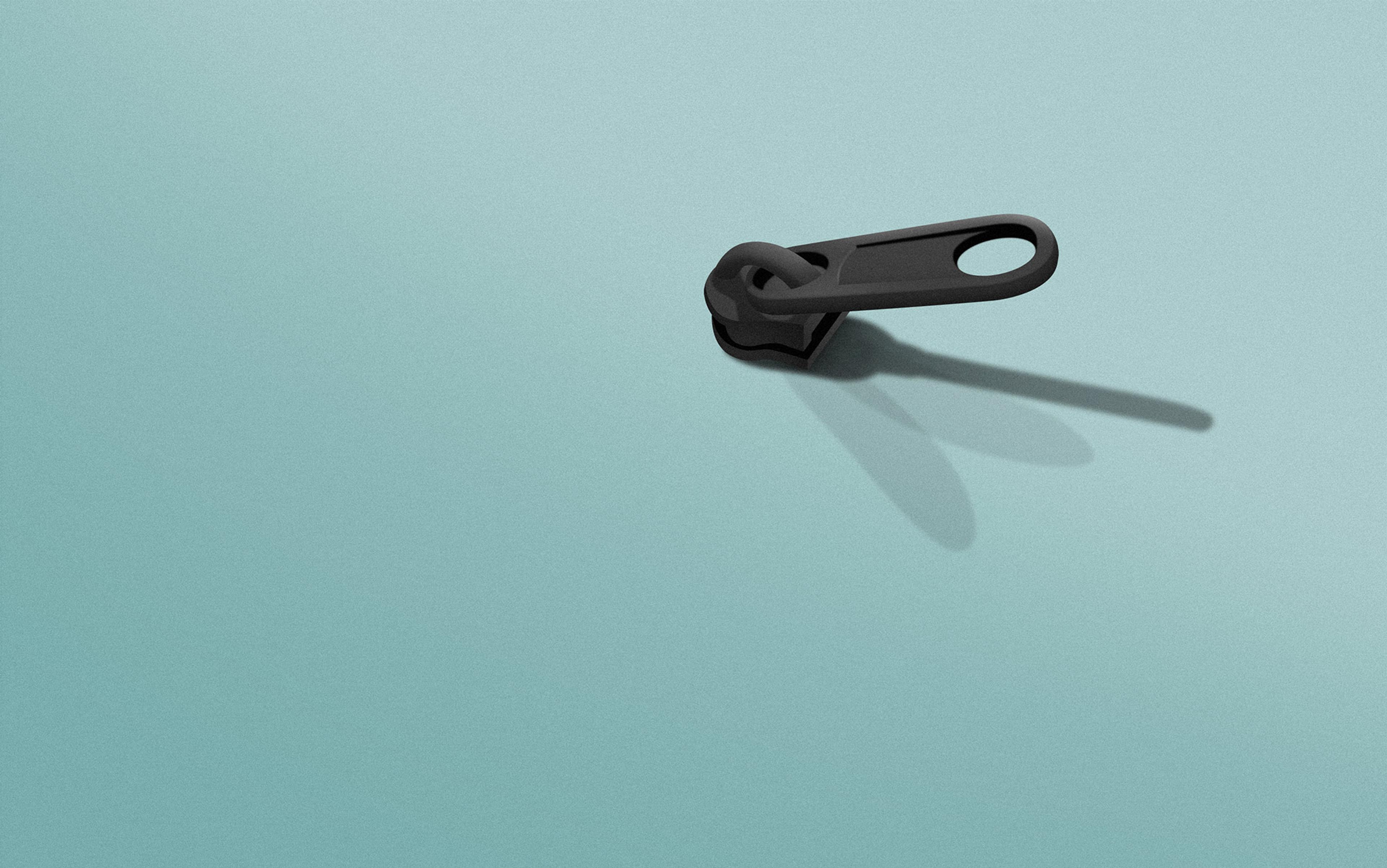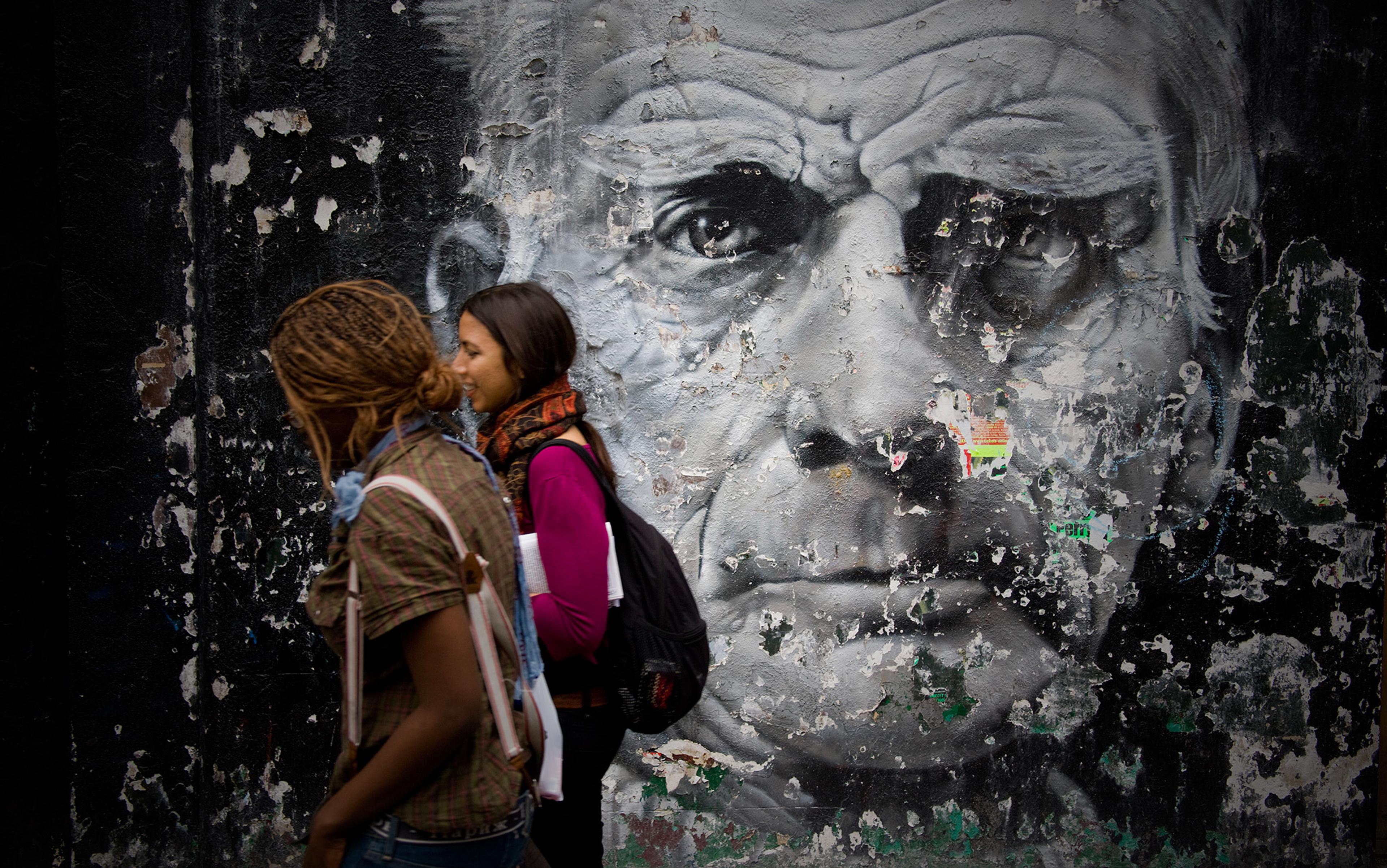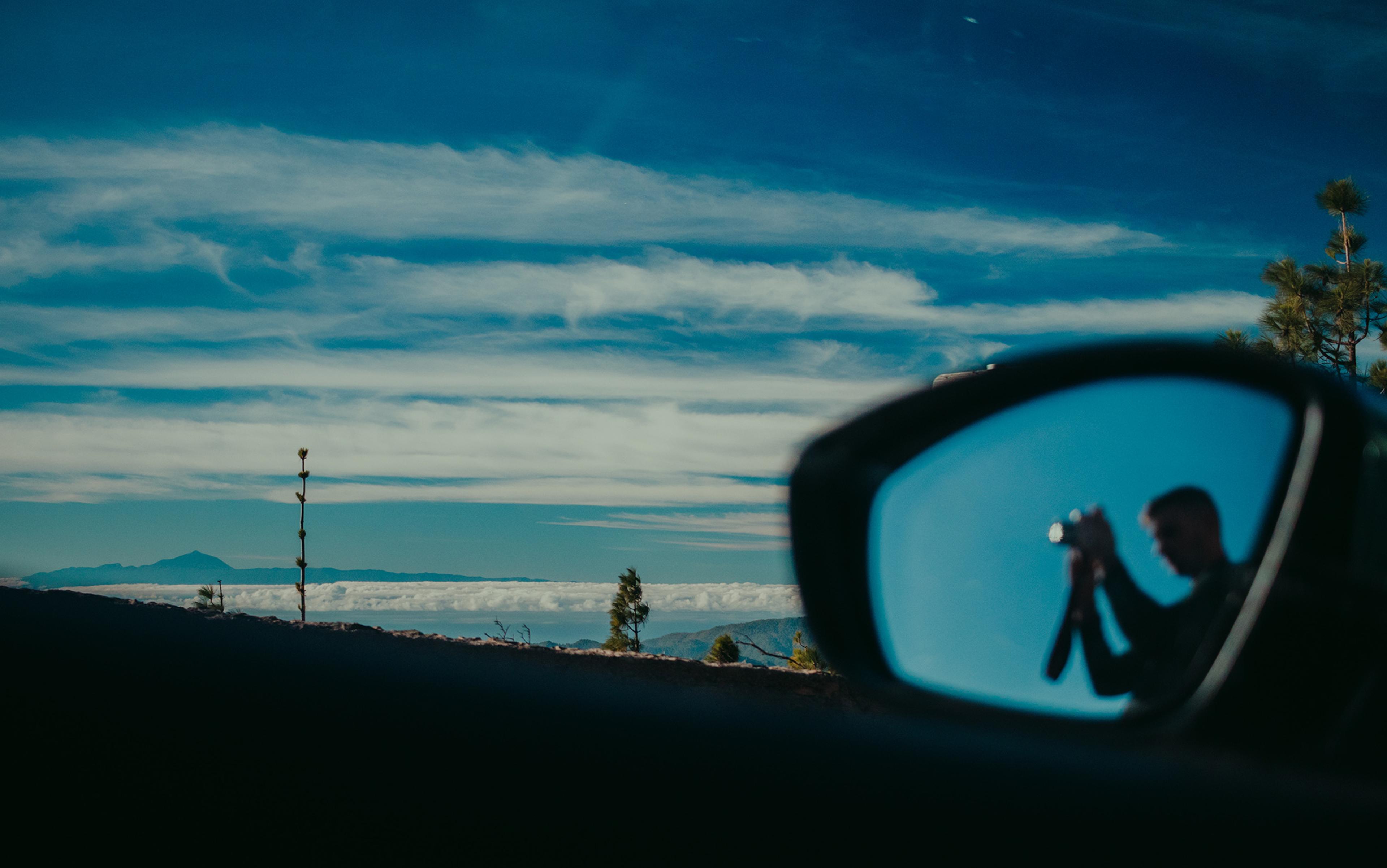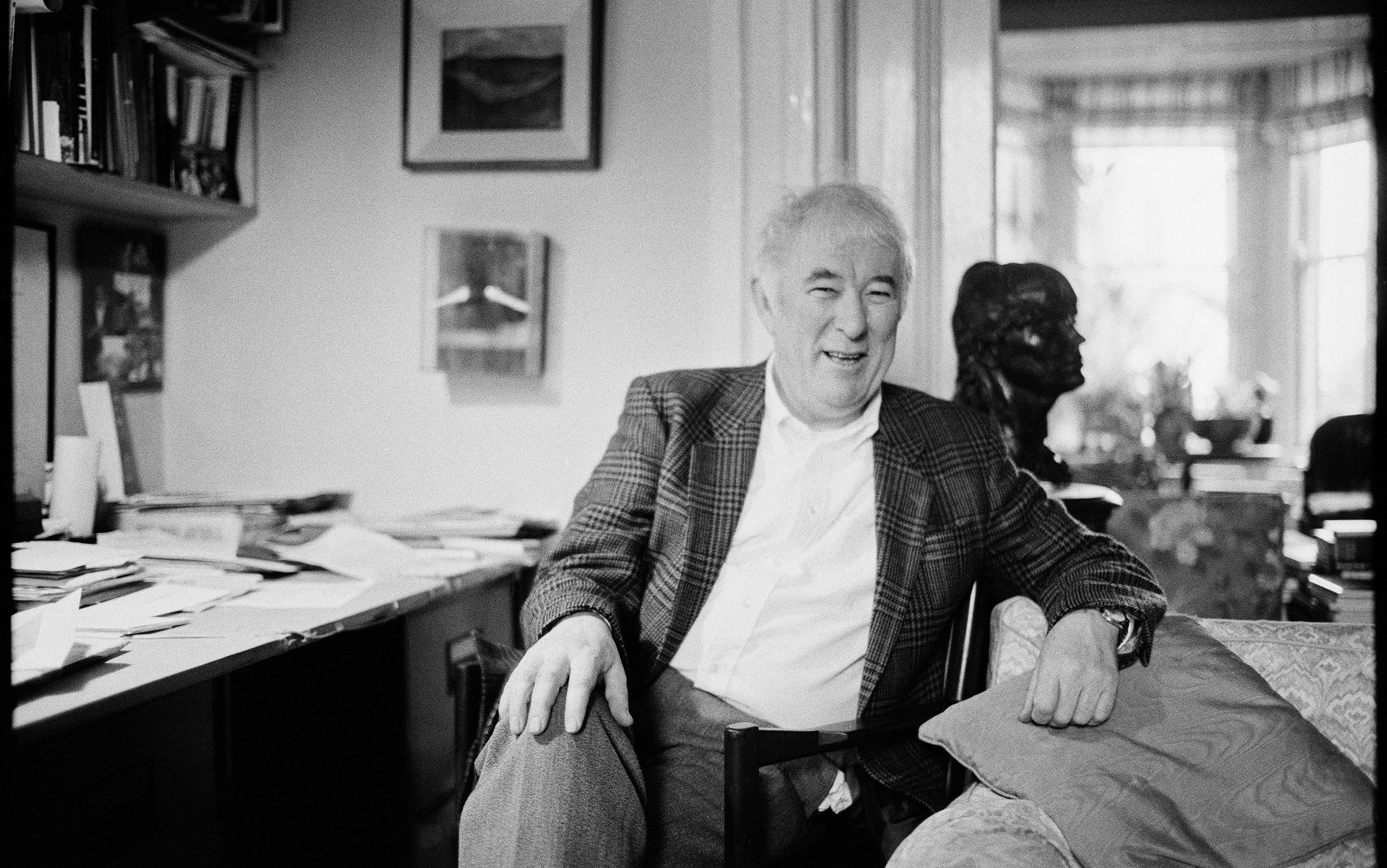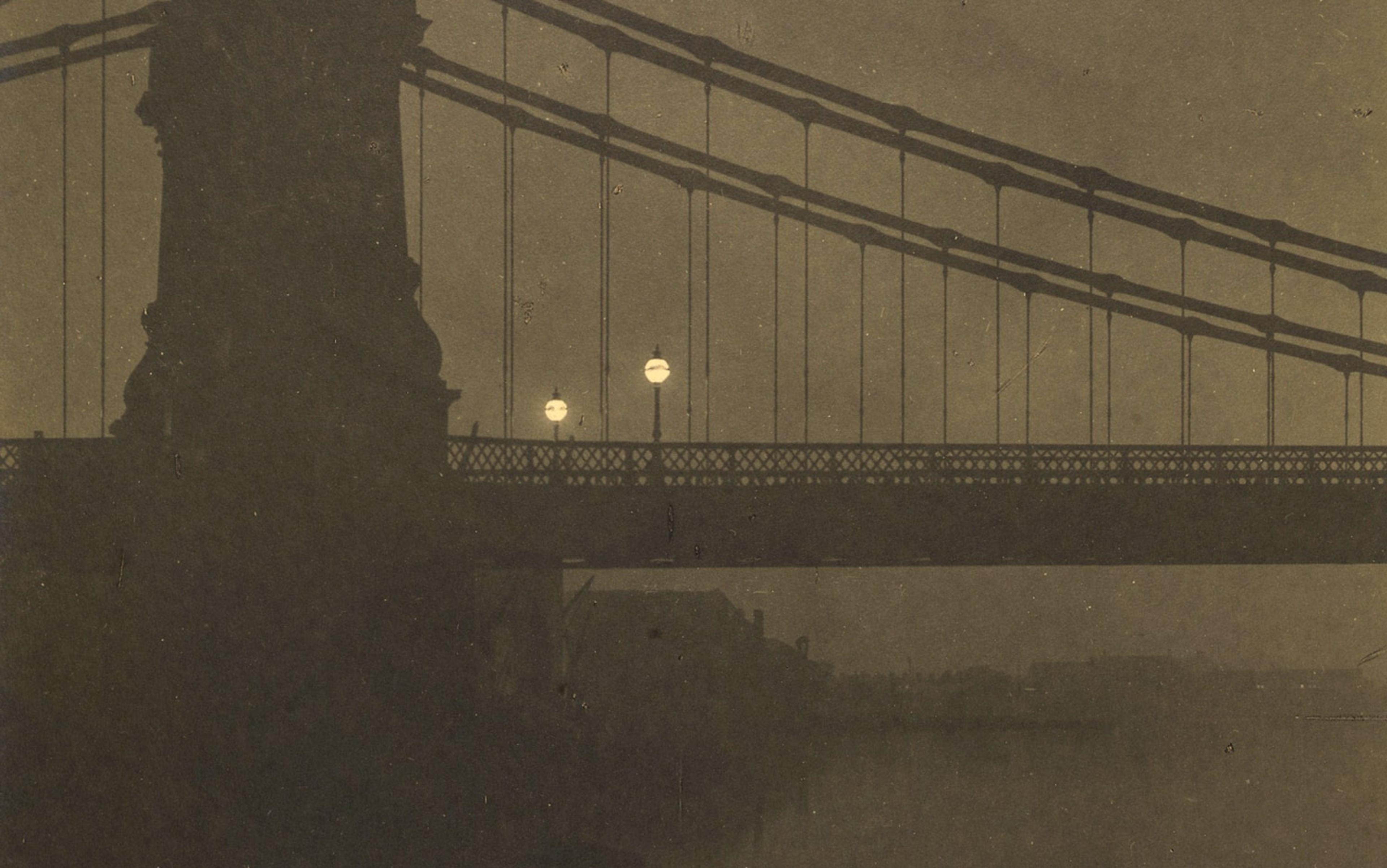It was going to New York City last week that finally did it, almost as if the point of going had been for me to be in Central Park on that fine crystal afternoon, to sit on a bench by the lake watching that cinema trick of a painting dissolving into motion. Something happened in that spot. I was touched in the core of my reverie by one of those unaccountable inner shifts. This one scarcely more than a flutter, really, but I took that flutter as the beginning of a larger turn, a motion counter to the deep inertia of the long weeks before.
The matter sounds so simple. All of a sudden, I found myself wanting to write sentences again and, when I did, it felt to me like the rains had finally come, stirring up life in the dry land. I don’t know if I even shifted in my place, but whatever it was has since brought something back that had gone missing. The time hasn’t been that long, really, but by what clock? What decides long? The clock of days or the clock of the inside life? How long can a person feel unconnected and not feel that it’s too long? Writing, for me, is the mainspring, the momentum, that small tipping action inside that makes the watch keep real time.
What matters, of course, are the more elusive measures, the sense one has of being inwardly tuned to something truly live, of moving in the sway of a larger potential. When you have gotten used to living with that feeling, then you feel it most bitterly when it is gone. You open your eyes one morning and realise that you are regarding the world differently. Regarding it as everything that is the case, as the philosopher said. The world where things just are: the dresser, the soap in its slithery tray, the plants on the ledge. That something is ‘the case’ means that it is not open to the transformations of the self.
That was how it hit me, anyway. It was midsummer. I have never been good with the slow-building heat and the defeated hang of the leaves on our maples. This was not the first time I’d wakened without a drop of inspiration. But this waking felt different. The tug of gravity was more resolute, as if something had been decided in the night. Inner states are hard to pin down, but I’d had an appetite, a certain relation to the world, and then, who knows why, I did not. I opened my eyes one morning and I lay there and conducted the soul’s careful inventory. But that sense of absence persisted and I went to it like it was an ailing tooth.
I opened my files and read over what I had been writing; I looked at the books on the desk, which were all there for a reason – because of what they summoned for me. They were solid, inert, strips of paper marking pages, but to what end? They did not point to anything; contemplating them did not start up the friction, the agitation, of the next thing. I understood – not for the first time – how much of writing for me was about potential.
Potential, as in possibility, yes. But also there is the old Latin root – potens: potency, power. To feel potential about something or someone, or about a situation, is also in a way to possess a power. A sense of meaningfulness, of desire tending toward outcome. To be writing, never mind what, so long as it seems purposeful, is to join the movement of words, or else it is to feel the coming together of words, a spark being thrown between the blurry inner activity of the self and the surrounding world. The act of writing assumes the worthiness of those words, the idea that bits of sound can assemble to create something we recognise, that others can recognise.
But no, that was not exactly what happened there by the lake in Central Park; it was not the thing I felt. I don’t want my image, my sense, of the event to be something constructed, something put together out of the components that are words. Because I don’t believe that writing happens like that. The idea of construction emphasises the discreteness of words, implying that one arranges them into sense, as if sense were latent in the dictionary and the right battalion of typing monkeys could blunder into it. As if one made sense rather than discovered it. There is such a difference – a philosopher’s tome worth of difference. But then, maybe there are writers for whom it happens in that other way. We are all different.
For me, the making of sentences has always meant finding the clarity and focus that allow me to overhear, to tap into. The strings of words that appear, as I type, as instances of making, are really much closer to being acts of transcription. I have brought myself within reach of something. And if I go back and erase, changing the words again and again, it is because I was not heeding closely enough. I was guessing out of laziness. Because what I think of as heeding, or attending, is hard work, so hard that to do it for a longer stretch of time is a taxing on the nerves.
That shift, that unexpected impulse came to me there on that bench, and with it a sense of return. I’m sure I romanticise. I go back to secure the stages, this leading to that: if I had entered the park somewhere else, or later, I might have taken another set of turns, missed the lake, the bench. I might have walked and walked and then found myself at the other side. It was as if I needed this very spot. Well, I think I did. It was being here – not somewhere else – that let me feel myself close to the stir of words again, and made me want to do something with that nearness.
I have no idea why the feeling of that stir stopped those long weeks ago, or why it now started up again. Nor will I presume – it could stop with the very next sentence. I have so many superstitions about it: mantras and codes, supplicatory rituals. The ancients’ rites and sacrifices. These were just attempts to get purchase on what cannot be willed or held. But having now felt it in the language, I want the rejuvenation that the nearness brings. When I am making sentences, I feel more located than at any other time, never mind that I am alone, aware of nothing in the world except the strange automatic flight of my fingers around the keyboard balanced on my lap. That action feels like a circuit being closed, and so long as I have that, I have a purpose. I am free of the anxieties that so often otherwise chase me through the day.
What is this energy, this availability? Why does it come and go as it does? Was it some trigger in the light or in the look of things that brought it on? I can bring back the details, starting with the graceful way the benches curved there, how the open vista broke from behind the high reeds. I was sitting on that bench. I had slowed down enough to start looking; I was not after anything. The things I looked at were set against some brighter, cleaner ground. At one point I noticed a quiver of movement at my feet and saw it was a small grey mouse. Now I want to be writing every day, even as I can’t yet say what I want to be writing about. Like I might sometimes want to be walking, with no destination in mind, feeling just the movement of the arms and legs. I want the cadence, only the cadence is inward.
My afternoon in Central Park is not a dramatic story on the face of it. But then so many of our stories, maybe the ones that matter most, turn on a private Jamesian pivot. This one is mine. I am in New York City, visiting for the weekend and, for a list of reasons I could go back and discover, I find myself walking deep in the heart of Central Park, following one pathway and another, lost in the green leafy light of the day. I am always amazed to think of this place, that you can leave the pulse of the city so decisively – that you can step away abruptly from one of the big avenues and be among these trees.
Then at some point I’m sitting on a bench and staring at a small lake, with a picturesque arching bridge there to my right, five or six ducks swimming languidly in the foreground, and a few couples in the middle distance stiffly manoeuvring rowboats. It’s the timeless sort of afternoon – clear, dry, the sun at the tree line taking on that first autumn haziness. I play an old game. Focusing myself, I create an imaginary frame around the scene in front of me and then I try to look at it as if it were a scene to be painted. I try to remember John Keats’s phrase, about the inspiration for writing his ode ‘To Autumn’ – and here, I have just looked it up, it is from his letter to his friend J H Reynolds in 1819: ‘Somehow a stubble plain looks warm – in the same way that some pictures look warm – this struck me so much in my Sunday’s walk that I composed upon it.’
Before this walk, this interlude of sitting, I had gone for long weeks without any of the impulse that I had for so long just taken for granted. How straightforward it was: get up, plan the day’s writing, get to work! But then, some time back, even before that morning, that kind of bounty started to feel more elusive, like another of the too-many perquisites of youth. A few sessions at the desk a week were often enough, half of what I had before. And then even these stopped.
I was like one of those Dustbowl mothers I’d once read about, tinkling a spoon in a glass to make the sound of ice
I opened my eyes one morning, I lay there and looked around, I checked myself. Afraid, I called on whatever voodoo I had, went to my sure-fire thoughts and images. But I couldn’t find the impulse there either; I had none of those ribbon-flutters of phrase in the mind. The dreaded thought arrived: what if there were no more? What if I had been given my allotment of ideas, my best writing energy? What if this was really it? Something that had been given, the unearned gift, has been taken away. There was no reason it was first bestowed; there is no reason it has now been rescinded.
I lived in those doldrums through much of the summer, weighed down. I tricked myself on waking, when the light was not yet oppressive. Sometimes I almost convinced myself that I had an idea. But I knew. I was like one of those Dustbowl mothers I’d once read about, tinkling a spoon in a glass to make the sound of ice. I tried these things, but I knew I was blocked. I was also under no illusion that I was special in this regard. I’ve heard the story from so many of my fellow writers. The tide pulls back, the shingle is exposed; there is the dank reek of kelp, the bubbling places where tiny things hide. The shingle is the desk. What a change! How charged that workplace could feel when the impulse was alive. How charged everything is then. Buying carrots and onions at the store is one thing when the juices are flowing. Things are quite different when they are not, when carrots are carrots and onions just weigh in the hand.
At the ocean, that tide comes in, again and again. But the natural order does not always map to the psyche. The writer’s dread is that the tide will go out and stay out. He wonders: what if there is some other system or set of laws, pegged to deservingness, or past-life karma, or, most frighteningly, to nothing at all? What if this is all just an arbitrary distribution of fortune? It’s not merely the loss of those sessions at the desk, and whatever was their product. It’s the loss of everything that was marked by those sessions: the anticipation, the gradual limbering up in advance of work, the gratifying retrospect, the resonance of the work done.
I was in some version of this state that afternoon when I crossed Eighth Avenue up at 81st Street and walked into Central Park. How can I describe the moment? I remember I was holding myself completely motionless, the better to create the illusion of looking at a picture. I was wondering what a writer would have to write to be as worthy of the scene as a landscape painter. What could words make that pigments could not? This was a lazy, idle wondering, not a concerted philosophical approach. For as I was asking these questions I was also watching a pair of ducks, that smooth forward glide which appeared to take nothing from them, that concealed completely what I knew to be the strenuous paddling going on underneath. I was looking and pondering, at the same time aware that the sun was starting to dip down below the treetops. I knew I would soon have to break off my sitting and keep on to where I was going, but how should I now convey what by implication was so momentous, even though it seemed the merest flicker?
The small shimmy of potentiality, the little hint of power, in what I suddenly recognised as the start of the shaping urge
But really there is nothing ‘mere’ – not to the hunter, the sentry, anyone who watches and waits. That rustling sound presupposes the creature that will make it, or that momentary flash of light – don’t we all know the story of ‘three on a match’: that interval is all the time the sniper needs? Scale is entirely in relation to attention, and attention to need and desire. I desired – I needed – to be writing, and when I felt that agitation there on the bench, I came to full alert.
It was not a voice saying you are ready to write, nor was it an idea or a full-blown image, nothing like what Keats had, or William Faulkner at the sight of a little girl in a tree. It was very nearly nothing at all. The small shimmy of potentiality, the little hint of power there, half-hidden, in what I suddenly recognised as the start of the shaping urge. Staring at the ducks, I noted the curving trace on the water behind those lifted tails, the afternoon light lying flat on the side of the arching bridge.
Taking in these things as well as the idea, still live, that there was a frame around all of it, I caught the old familiar disturbance, the desire to be getting at things with words, to be using sentences to create, not a two-dimensional picture to be held in a frame, but a three-, a four-dimensional meditation, that would include not just the seeing, but the context of it, and, inescapably, something of the person experiencing it. There it was, quick as feathers ruffling, sudden as something flashed in an open palm and then immediately pocketed. Almost nothing. But I knew it would be enough. Or rather, I hoped. As I will keep on hoping. For nothing is clearer to me than that it is a kind of grace, a mysterious bestowal, bestower unknown.
